By definition, online marketplaces offer ecommerce businesses the opportunity to sell their products in multiple places. It connects buyers and sellers across the UK – and the rest of the world – offering the opportunity for brands to increase their visibility across different audiences. With so many options, of course, comes the challenge of choosing the best platforms for your business.
We’ve put together our top ten UK online marketplaces for SMEs in 2023, as well as the costs associated with them – including a few marketplaces you may not have come across.
Top UK online marketplaces
1. Amazon
2. eBay
3. Etsy
4. Folksy
5. Not On The High Street
6. Wish
7. Fruugo
8. OnBuy
9. Cratejoy
10. Newegg

Amazon
Hitting annual sales of nearly £17.5 billion in the UK, Amazon is a great place to start for exposure.
Amazon is the first place 23% of shoppers begin their online search in the UK. It also boasts itself to an incredibly successful fulfilment service – Fulfilment by Amazon (FBA). Amazon FBA allows merchants to reach the marketplace’s most loyal customer base – Amazon Prime users.
The first thing you must do to sell on Amazon is create a seller account. Once you’re registered as a business, you can sell across European marketplaces where Amazon has coverage.
Fee: Start selling with no monthly free, but per item fee. Or, £25 (ex. VAT) per month.
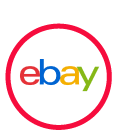
eBay
When it comes between deciding against eBay over Amazon, it is worth considering two things; Amazon is a competitive market for individual sellers, cleaning towards newer items. Despite being another crowded marketplace, eBay does provide a niche for used items and collectibles.
Secondly, Amazon’s product categories are both competitive and to some, restrictive. The decision regarding where products appear is made by Amazons team, whilst eBay allows you to sit outside the lines of categories under “does not apply”.
Other perks of the platform? Instant tracking of the products you sell. eBay’s marketplace also allows you to develop your own brand and puts focus on expanding your business.
Fee: In most instances, you will only pay when you sell – fees are then 10% of the final selling price.
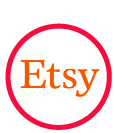
Etsy
A reputation for hand-made and bespoke items makes Etsy a popular marketplace for ‘crafty’ SMEs. Once registered, your business is provided with an Etsy shop, giving immediate credibility to your brand.
Sellers have a selection of tools to choose from when it comes to growth on the platform. For example, you can notify customers when you have a product back in stock.
Their price model allows easy tracking of overheads, another reason as to why Etsy was recently voted one of the easiest online marketplaces to use.
Fee: It costs £0.16 to publish a listing. A listing lasts for four months or until the item is sold. Once an item sells, there is a 5% transaction fee on the sale price.
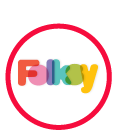
Folksy
A great alternative to Etsy, is Folksy, another option for sellers of handmade goods.
The key difference between the two, as Folky will them you themselves, is that “[they] are still much smaller than Etsy. Around 9000 creators sell their work through Folksy every year, giving [sellers] work more room to shine.”
When it comes to cost, sellers can choose from two plans; a pay-as-you-go Basic account, or Folksy Plus, suited for businesses with a bigger inventory. Once you’re in, it’s easy to create a personalised shop page to promote your items; As well as setting up your own URL, running different promotions, and having a dedicated support team on hand.
Fee: Basic account – 15p per item or Folksy Plus – £5 a month.
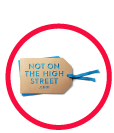
Not On The High Street
Another great marketplace for small businesses, NOTHS has a very ‘niche’ feel that helps encourage a user’s journey for searching out something really special.
It’s worth considering that not every business application gets accepted on NOTHS; So, whilst you might be up against some tough competition, naturally, you’ve got a less saturated marketplace to sell on.
So, it is not easy, it is not cheap, but if you have a product to fill a gap in their range, it may just be the best decision you make for your business.
Fee: With each product you sell, NOTHS will charge 25% commission (plus VAT).

Wish
Wish is an online marketplace in the UK, mainly for very low-cost items.
Despite having delivery times exceeding three weeks, the platform continues to have millions visit the site (and app!) every year. The Wish mobile app opens products to a huge base of mobile shoppers, making it a very appealing marketplace.
To improve your sales and reach, Wish offer different promotional tools including the option to run advertising campaigns with a targeted audience.
Fee: Sellers will be just charged 15% commission when a product is sold.
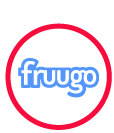
Fruugo
Combine the market of 23 countries, and the ability to automatically translate your listings into 11 languages, and you have yourself the perfect international marketplace. Over the last few years Fruugo has fast become a popular choice for businesses looking to reach outside the UK.
Fruugo covers retailers across most industries, with product categories looking very similar to your standard marketplace.
Fee: No monthly fee or listing fee. 15% commission on each sale, as well as a 2.35% funds processing fee.

OnBuy
According to OnBuy themselves, they are the UK’s number one alternative to Amazon.
The marketplace offers some worthwhile benefits for sellers, including immediate payments, and risk-free selling under their smart partnership with PayPal. This means offering PayPal Seller Protection to cover any issues with eligible orders.
The catch? Commission rates are fiercely competitive, with consumer electronics costing a 5% fee, and everything else a 9% commission fee. It’s also worth noting the PayPal fee of 1.9%-3.4% will also apply, as well as a 20p fee per transaction.
Fee: Standard (£19 per month ex. VAT) and Partner (£39 per month ex, VAT).
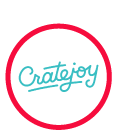
Cratejoy
Subscription boxes are a new and popular trend in the world of ecommerce. They can be used both by companies (that also offer a conventional catalogue) and initiatives that base their sales on monthly subscriptions.
The UK online marketplace of Cratejoy is home to hundreds of monthly subscription boxes that span across multiple interests. Boxes may consist of fresh food, make-up, surprises for the reader, or collectibles of popular culture.
Sellers on Cratejoy receive a custom website, built-in subscription payment options and an analytics dashboard, it’s also perfect if you’re looking for a marketplace with an inbuilt CRM.
Fee: 10% fee on each sale
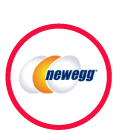
Newegg
Newegg is a perfect platform for businesses selling electronic items. Like Amazon FBA, Newegg also offers its own fulfilment service, saving you time on labels, orders, shipments and returns management.
Applying as a seller is a little more complex, with each submission needing to pass a quality analysis. Once you’re past the checks, Newegg encourages sellers to contact customers with post purchase emails and marketing lists, all in an effort to improve brand engagement.
Fee: Free until you pass 5,000 listings.
Custom Marketplaces & Platforms
As you already know from reading this post, research is key when it comes to finding the best online marketplace for your business, especially as an SME. We have only scratched the surface by evaluating the most popular ones.
The alternative is to build your own ecommerce website using platforms such as Magento, Shopify, BigCommerce or WooCommerce.
How can Khaos Control help my marketplace performance?
Khaos Control offers multichannel software making it easy to manage multiple marketplaces in one centralised system. Multichannel retail software such as Khaos Control can automate the synchronisation of your inventory, listings, orders and customer data within moments; boosting the performance of your business and saving time on tedious manual tasks.
Request a demo to find out how Khaos Control can help your ecommerce business.


